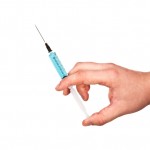John Baker was appointed to Chair of Mental Health Nursing in 2015. John's research focuses on developing complex clinical and psychological interventions in mental health settings. He is particularly interested in i) acute/inpatient mental health services and clinical interventions; ii) medicines management in mental health care; iii) the attitudes and clinical skills of mental health workers, iv) the mental health workforce. The good practice manuals which he developed have been evaluated, cited as examples of good practice, and influenced clinical practice in the UK and abroad. The training package for patients, service users and carers to promote research awareness and understanding has been cited by the MHRN and NICE as an exemplar of good practice.
John is a member of the NIHR post-doctoral panel, sits on the Editorial boards for Journal of Psychiatric and Mental Health Nursing & International Journal of Mental Health Nursing. He is a Registered Nurse Teacher with the Nursing, Midwifery Council (NMC) and is active within Mental Health Nursing Academics (UK).









